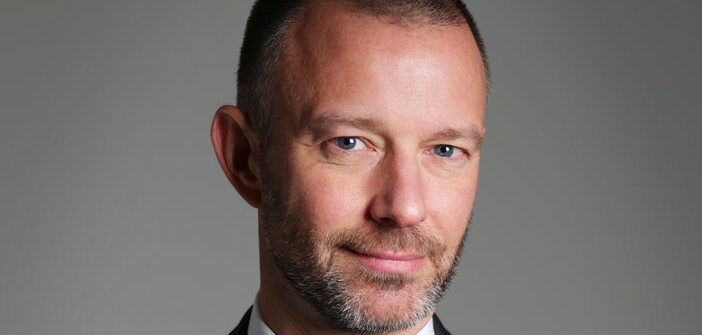Airports Council International (ACI) has hit back at claims by IATA that airports and air navigation service providers (ANSPs) intend to recover pandemic losses from airlines.
Speaking at IATA’s Annual General Meeting in Boston, Massachusetts, director general Willie Walsh warned that planned increases in charges by airports and ANSPs will stall the recovery in air travel. He said that confirmed airport and ANSP charges increases had already reached US$2.3bn.
Speaking at the AGM, Walsh said, “A US$2.3bn charges increase during this crisis is outrageous. We all want to put Covid-19 behind us. But placing the financial burden of a crisis of apocalyptic proportions on the backs of your customers, just because you can, is a commercial strategy that only a monopoly could dream up. At an absolute minimum, cost reduction – not charges increases – must be top of the agenda for every airport and ANSP. It is for their customer airlines.”
According to IATA, the ANSPs of the 29 Eurocontrol states, the majority of which are state owned, are looking to recoup almost US$9.3bn (€8bn) from airlines to cover revenues not realized in 2020/2021.
“They want to do this to recover the revenue and profits they missed when airlines were unable to fly during the pandemic. Moreover, they want to do this in addition to a 40% increase planned for 2022 alone,” an IATA statement said.
Examples presented by IATA include:
- Heathrow Airport pushing to increase charges by more than 90% in 2022.
- Amsterdam Airport Schiphol requesting to increase charges by over 40% over the next three years.
- Airports Company South Africa (ACSA) asking to increase charges by 38% in 2022.
- NavCanada increasing charges by 30% over five years.
- Ethiopian ANSP raising charges by 35% in 2021.
“Today I am ringing the alarm,” said Walsh. “This must stop if the industry is to have a fair opportunity at recovery. Infrastructure shareholders, governmental or private, have benefited from stable returns pre-crisis. They must now play their part in the recovery. It is unacceptable behavior to benefit from your customers during good times and stick it to them in bad times. Doing so has broad implications. Air transport is critical to support economic recovery post pandemic. We should not compromise the recovery with the irresponsibility and greed of some of our partners who have not addressed costs or tapped their shareholders for support.”
In response to IATA’s comments, Luis Felipe de Oliveira, director general, ACI World, said, “After a period that saw unprecedented collaboration and unity of airports and airlines in surviving this crisis and rebuilding passenger confidence, it is disappointing to hear this tone of statements coming from IATA. Claims made about the airport industry are out of context and don’t reflect the efforts made by airports to support the aviation ecosystem during the pandemic.
“Airports have also experienced enormous financial stress and had to make drastic cuts to keep afloat. And in many jurisdictions, airports did not receive the same level of support compared to air carriers. To keep facilities running and safe to operate cargo and humanitarian flights during the pandemic, for example, airports incurred large costs. Fundamentally, airports will always remain infrastructure-intensive businesses — this translates into a high ratio of fixed costs.”
De Oliveira countered IATA’s claims by saying the airport industry had been supportive of the airline community during the crisis, with nearly 70% of surveyed airports having implemented some form of discount or incentives in their airport charging schemes to address the impacts of Covid-19 and support a recovery. He also said that, during 2020, many airport operators deferred or waived certain airport charges in support of their airline clients.
“IATA’s own data shows that at the depths of the crisis, there was actually a decrease in user charges as a share of airline costs,” he said. “An analysis of charges, which contain both air traffic control and airport charges, shows that these charges are only approximately 5% of airline cost items in 2020, and this share decreased from pre-Covid 2019 levels.
“Overall, airports are also businesses in their own right, that have suffered great financial stress during the Covid-19 crisis and the historic downturn of passenger traffic. In fact, this may be a moment to rethink the economic oversight of airport charges to something that is more reflective of market conditions allowing for risk to be shared across airlines and airports. Airports will remain infrastructure-intensive businesses – which means inevitable high fixed costs which must be maintained for the benefit of passengers and the communities that airports serve. We will continue to collaborate with our airline partners and other stakeholders to rebuild a sector that is resilient and sustainable – but it needs to be fair for the entire aviation ecosystem.”
Olivier Jankovec, director general of ACI Europe, added, “We should ultimately remember that airlines can afford to pay airport charges. Airlines only pay airports if they operate, and only weeks after they have collected revenue from passengers. Airlines are ill-placed to give us a lesson in preserving the interests of customers, when they refused for months to refund passengers for flights that could not take place, with some still dragging their feet to do so. The intervention of the European Commission on this is telling.
“The long-term recovery of the air transport ecosystem will be secured through stabilizing and further stimulating demand. These objectives are core to airports’ pricing structures with over 95% of Europe’s airports routinely offering rebates and incentives to airlines. Focusing on investment in sustainable infrastructure will be essential in the recovery as part of the Building Back Better agenda. This calls for increased cooperation and long-term alignment between all air transport ecosystem partners, rather than short-term unilateral actions at the expense of others,” he said.

